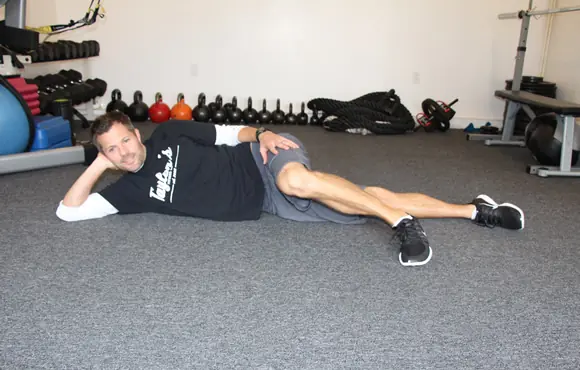4. Cross-train
Doing non-running but aerobic cross-training as well as light resistance training on your off running days is a great way to optimize your running fitness. Cycling, swimming, using the elliptical machine or row machine are all great forms of cross-training. Light resistance training particularly targeting the core and upper body will greatly help you maintain good running form longer during your runs, helping to fight off fatigue.
5. Find a training group
Whether you're paying for a coach who is leading a group training program or you just round up your running buddies, training in a group can make all the difference in the world in how successful you are with your training. When you know you'll be missed, you tend to be more accountable for your workouts.
On those early morning long runs, you're much more likely to roll out of bed when you know the gang is waiting for you. Also, having a buddy's encouraging word or just a pat on the shoulder during a tough run, can really make a difference in pulling through and fighting off fatigue.
6. Research the race
Find out what sports drink will be provided at the race. If possible, train using the same sports drink, or plan ahead how you'll use your own (wear a hydration belt, have friends or family members staked out along the route to hand you your sports drink of choice). Never use a sports drink or gel during a race, that you've never tried/tested during training.
Scope out at which mile markers water and/or aid stations will be provided. Also find out if and where Porta Potties will be placed along the route. Knowing where these are located can be very important if you begin to experience stomach distress along the run.
Check out the elevation map (usually provided on the race website). Pinpoint where the hills (if any) are located. Just because a race is in a flat are of the country doesn't mean it will have a flat course. Many races will incorporate the rolling hills of local parks and/or cross over high-rise bridges or ramps to and from overpasses or underpasses.
7. Rest
Rest is just as important as a run workout. Your body needs time to rebuild and repair. Skipping rest days will tax your body's ability to recover and make you more prone to injury. Be sure to take your scheduled rest days, but also listen to your body.
If you're feeling worn down, have no energy, feel sore, tired, lethargic and or unmotivated, check your resting heart rate before getting out of bed. If it's just a few beats higher than normal (and you don't have a cold or some other type of infection) you more than likely are overtraining and need a rest day.
 READ THIS NEXT: The Complete Idiot's Guide to Running a Half Marathon
READ THIS NEXT: The Complete Idiot's Guide to Running a Half Marathon
Connect with us on Twitter, Facebook, Instagram or Pinterest for more tips, recipes and ideas to fuel your ACTIVE life.
- 2
- of
- 2
Get ACTIVE on the Go


13.one Half Marathon
Get expert advice and guidance as you progress in your journey to becoming an avid runner.
Available for iOS







Discuss This Article